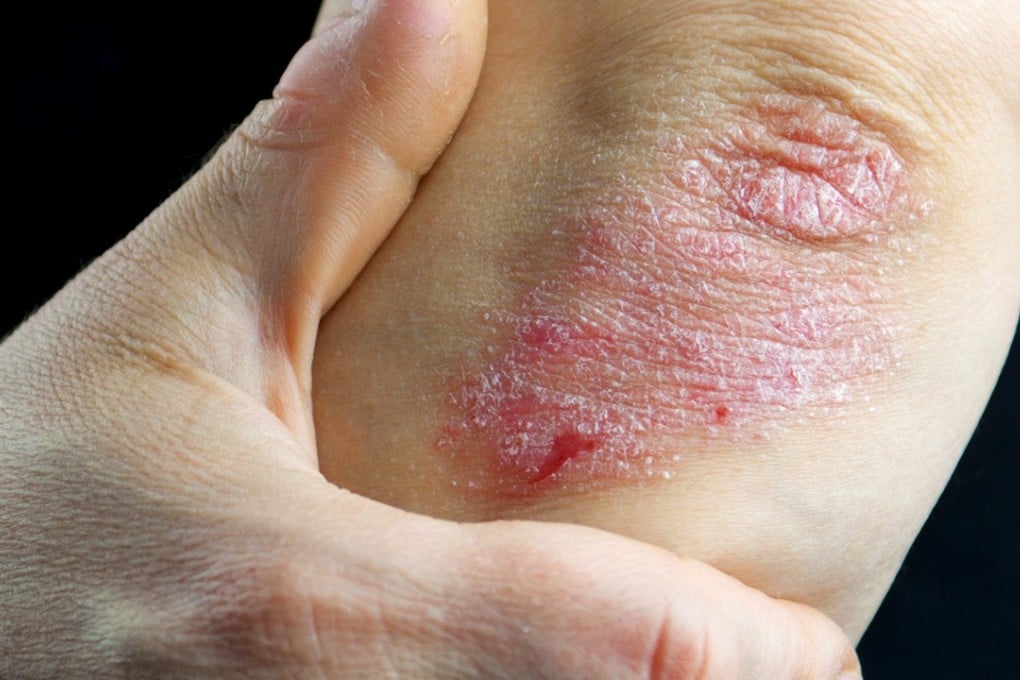Psoriasis patients in Hong Kong seek quicker access to better treatment – and more understanding of skin condition
They first have to try other less effective traditional drugs before they are moved on to biologic treatments at public clinics

Patients with psoriasis, an itchy and sometimes painful skin condition, have urged the Hong Kong government to raise public awareness about the disease and boost resources to allow them better access to more advanced and effective but costly biologic treatments.
They hoped they could receive such treatments at public clinics directly rather than first having to try other less effective traditional drugs, as current policy dictated.
The appeal came on Wednesday ahead of World Psoriasis Day on October 29.
“The current government policy is in effect forcing patients to suffer,” Hong Kong Psoriasis Patients Association chairman Gary Lai Hing-kwan said.

“We all know there are more effective drugs available. But because of the resources issue, public doctors will first ask patients to try other traditional drugs and it is only when all those treatments have been proven to not work, will patients be referred to receive the biologic treatments. And it can take as long as three years.”